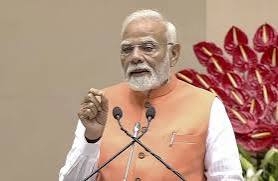IIT Kanpur's study Sutra model for COVID-19 shows the third coronavirus wave can have three kinds of impacts. As per the study, the third COVID wave will be a "ripple" in case there is no significantly faster-spreading mutant. if there is a faster-spreading mutant, the magnitude of the third wave will be "comparable to the first one.
However, it is an optimistic scenario, says the team
As per Maninder Agarwal, Professor, IIT Kanpur, who was part of the team , they have created three scenarios.
Three scenarios of third COVID wave
First: The third wave will be a ripple. If there is no significantly faster-spreading mutant, the third wave will be a ripple and if there is such a mutant, the third wave will be comparable to the first one, Agarwal said.
"The optimistic one - where we assume that life goes back to normal by August, and there is no new mutant."
Second: The intermediate one - where we assume that vaccination is 20 per cent less effective in addition to optimistic scenario assumptions, he points out
Third: The pessimistic one - This has an assumption different from the intermediate one. A new 25 per cent more infectious mutant spreads in August, Agarwal added.
IIT Kanpur's study Sutra model for COVID-19 shows the third coronavirus wave can have three kinds of impacts. As per the study, the third COVID wave will be a "ripple" in case there is no significantly faster-spreading mutant. if there is a faster-spreading mutant, the magnitude of the third wave will be "comparable to the first one.
However, it is an optimistic scenario, says the team
As per Maninder Agarwal, Professor, IIT Kanpur, who was part of the team , they have created three scenarios.
Three scenarios of third COVID wave
First: The third wave will be a ripple. If there is no significantly faster-spreading mutant, the third wave will be a ripple and if there is such a mutant, the third wave will be comparable to the first one, Agarwal said.
"The optimistic one - where we assume that life goes back to normal by August, and there is no new mutant."
Second: The intermediate one - where we assume that vaccination is 20 per cent less effective in addition to optimistic scenario assumptions, he points out
Third: The pessimistic one - This has an assumption different from the intermediate one. A new 25 per cent more infectious mutant spreads in August, Agarwal added.








68.jpeg)















